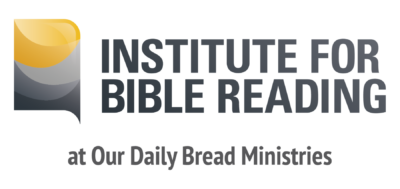N. T. Wright is one of the most prolific and well-known Bible scholars in the world. His enormous body of work around the New Testament has shifted the conversation around topics like justification, kingdom, heaven, and even the gospel itself.
A few years ago, before IFBR was founded, our Senior Director of Content Glenn Paauw taught a 6-part class on Wright at Living Way Fellowship, a Foursquare church in Highlands Ranch, CO. We recently unearthed the audio recordings from the class, and the folks at Living Way have graciously given us permission to post them here.
If you’ve ever been curious about Wright’s work but haven’t had the time or energy to pick up his 700-page scholarly books, Glenn’s explanations and summaries will be immensely helpful.
Week 1: Introduction to N. T. Wright—Christian Origins & the Question of God
Wright’s goal is to tell the story of the New Testament, doing justice to its original history and meaning, then inviting us to take our own places in its drama.
Week 2: The New Testament & the People of God
Wright’s key question is: How should we read the Bible? We begin with an awareness that the Bible is a collection of different kinds of writing that come together to tell God’s great narrative. Then we immerse ourselves in the context of the New Testament—the world of Second Temple Judaism. In short, we learn to read the Scriptures on their own terms.
Week 3: Jesus & the Victory of God
What did the life of Jesus mean in its own own time and in its own world? The announcement of the kingdom, the Sermon on the Mount, the Lord’s Prayer, the parables, the healings, the Lord’s Supper, and the cross—how would all of this have been seen, heard, and understood in first-century Israel?
Week 4: The Resurrection of the Son of God
The ancient pagan world had its own understanding of what happened after death. Indeed, it had its own Old Testament (Homer) and New Testament (Plato). How did the Jewish hope for resurrection and a renewed world challenge this? And what did the surprising resurrection of Jesus mean within this Jewish world?
Week 5: Paul & the Faithfulness of God, Part 1
Paul brought the gospel about Jesus to a world of Jewish synagogues, pagan religion, Greek philosophy, and Roman empire. Paul’s message was a Jewish story reshaped around Jesus. But how did Paul put all the pieces together? How did he connect the stories of creation, humanity, Israel, and Jesus?
Week 6: Paul & the Faithfulness of God, Part 2
The core Jewish beliefs in the first century were that the one, true creator God (monotheism) had chosen Israel (election) and therefore sooner or later God would have to act in history (eschatology) for them. So how did Paul re-envision all this around the new revelation of Jesus and the Spirit?

